Summary of "2025 Financial and Tax Legal Service Business Exchange Conference"

In order to implement The Spirit of the 20th National Congress of the Communist Party of China and The Decision of the Central Committee of the Communist Party of China on Further Comprehensively Deepening Reforms and Advancing Chinese Modernization, and adapt to the new tasks and requirements of the new round of financial and tax system reform, analyze and discuss the new dynamics, new business, and hot and difficult issues of current tax services, and lead the high-quality development of China's financial and tax legal services. On August 31,2025, hosted by the Finance and Tax Law Professional Committee of the All China Lawyers Association,co-organized by the Heilongjiang Lawyers Association, Jilin Lawyers Association, and Liaoning Lawyers Association. The "2025 Financial and Tax Legal Service Business Exchange Conference" supported by the Law School of Liaoning University, Center for Research in Fiscal and Tax Law of China University of Political Science and Law, and Hwuason Law Firm and other units was grandly held at the Friendship Palace Hotel in Harbin. The theme of the forum was "High-Quality Development and Innovation in Tax-related Services". This exchange conference received positive responses from tax lawyers, tax advisor, certified public accountants, tax officials, university scholars, graduate students, and corporate finance and tax personnel nationwide, with over 800 registrations. Due to venue limitations, after review by the host and organizers, more than 300 people were finally selected to attend the conference.
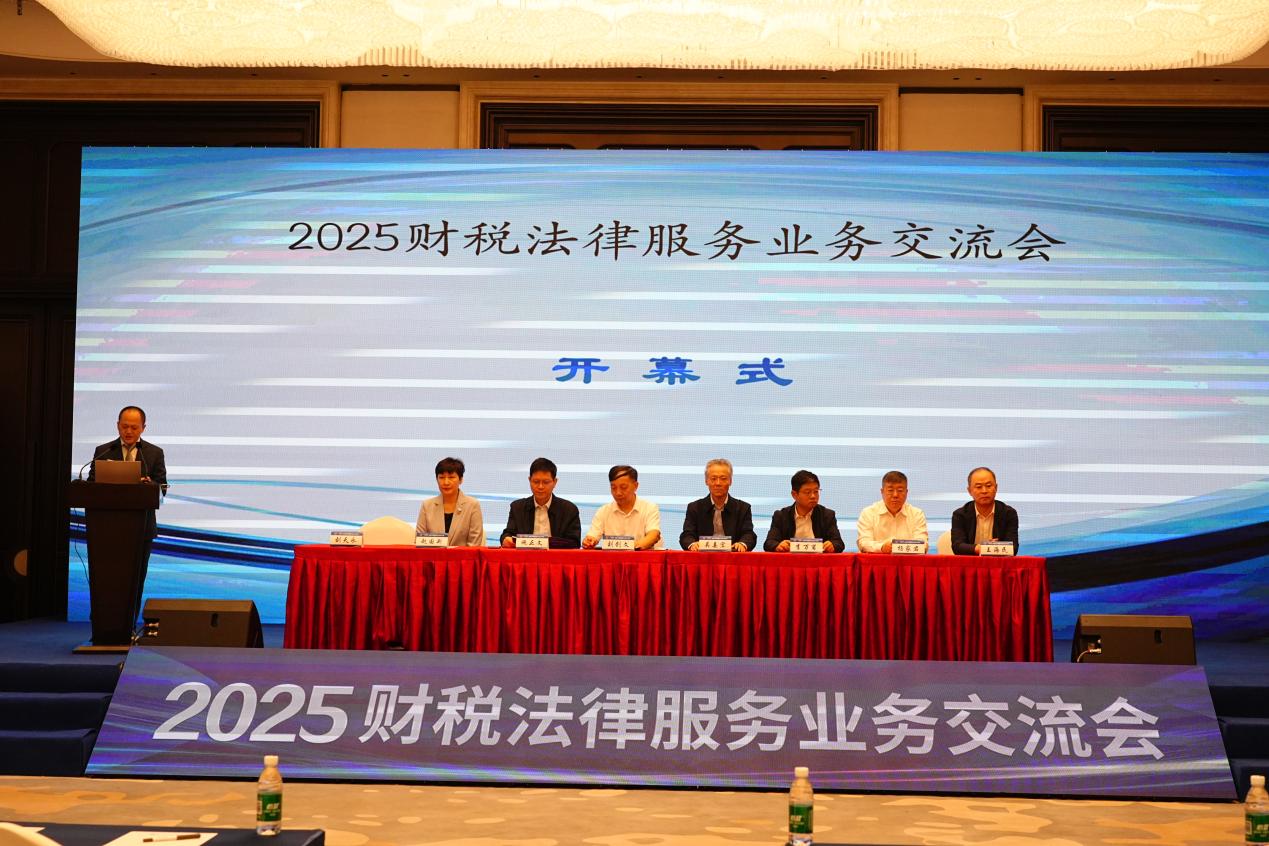
Opening ceremony
8:30 a.m. on August 31st, the opening ceremony of the business exchange meeting was grandly held. Wu Jianghong, Vice President of the All China Lawyers Association, Liu Jianwen, President of China Association for Fiscal and Tax Law and Professor of Peking University Law School, Shi Zhengwen, Director and Professor of Center for Research in Fiscal and Tax Law of China University of Political Science and Law, Zhao Guoxin, Vice President of the Heilongjiang Lawyers Association, and Wang Haimin, Vice President of the Liaoning Lawyers Association, attended the opening ceremony and delivered speeches. Liu Tianyong, Director of the Fiscal and Tax Law Committee of the All China Lawyers Association and Director of Hwuason Law Firm, served as the host.
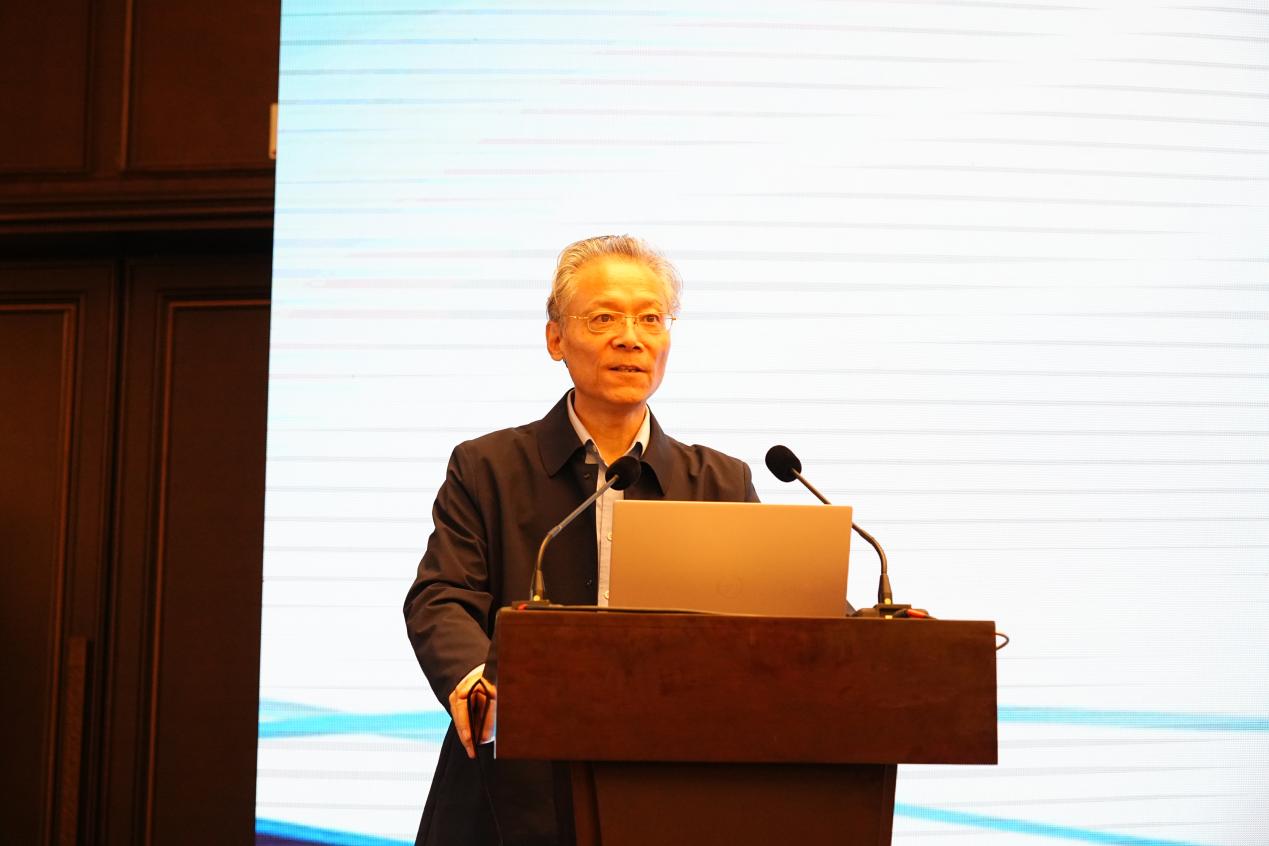
Vice President Wu Jianghong's speech
With the acceleration of tax rule of law and the modernization of digital empowerment tax governance, market entities face more precise tax supervision, and the demand for professional tax-related legal services continues to expand. Although the tax lawyer industry in China started relatively late, the huge potential of the tax service market makes the future of tax lawyers very promising. Vice President Wu put forward the following three suggestions and hopes for the future development of tax lawyers: First, actively participate in tax legislation, promote good governance with good laws, and promote development with good laws; Second, help taxpayers accurately understand tax policies and laws, and prevent and resolve legal risks. Third, promote the resolution of tax-related disputes in accordance with the law and uphold fairness and justice. Finally, Vice President Wu stated that since 2010, the business exchange meeting has been a grand event for strengthening the capacity building of the Chinese tax lawyer industry, not only promoting the rapid development of the tax lawyer industry. It has also established a communication and exchange platform for tax lawyers, tax advisor, certified public accountants, experts and scholars, administrative agencies, and enterprises and institutions, using professional strength to promote the construction of the national tax rule of law. Congratulations on the successful conclusion of this exchange meeting.
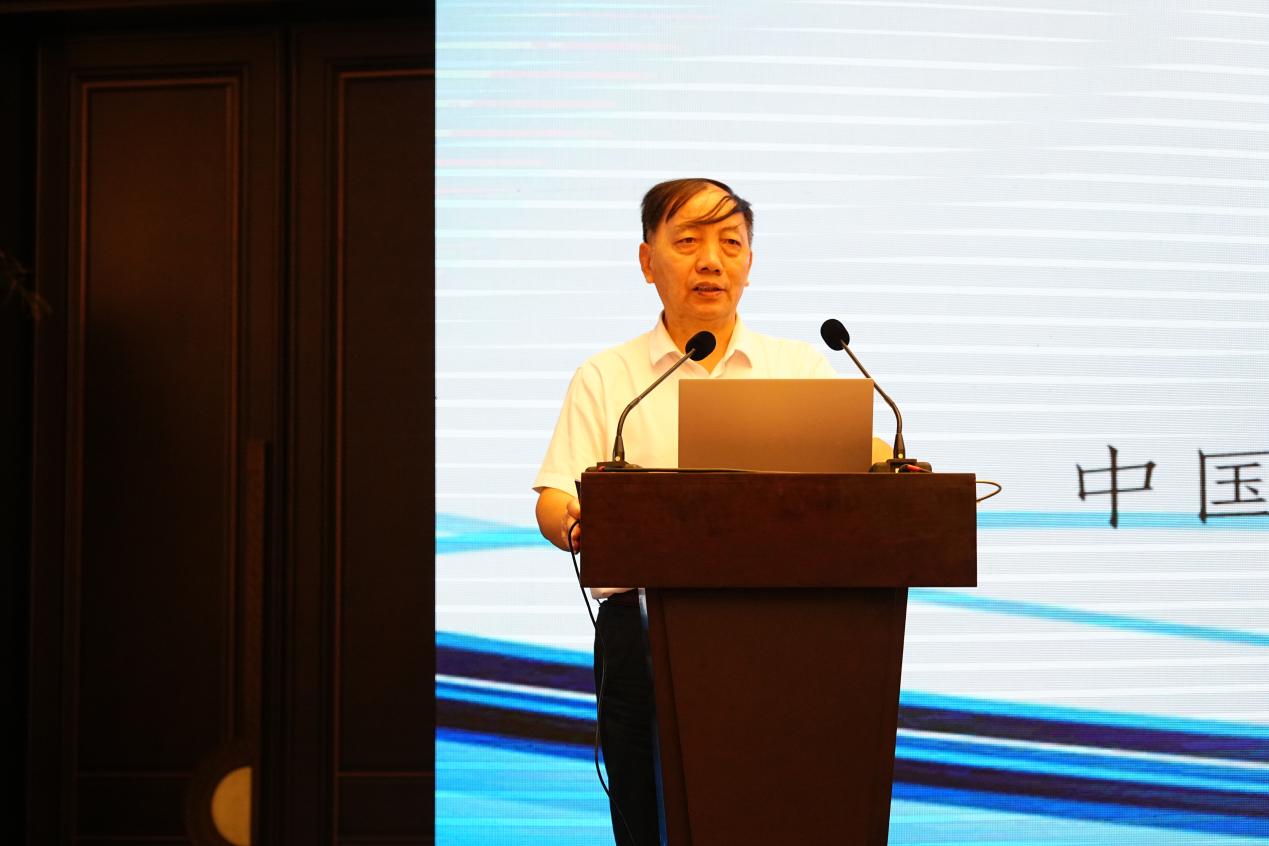
President Liu Jianwen's speech
In his speech, President Liu Jianwen pointed out that this business exchange meeting was held at a critical time when the country formulated the "15th Five-Year Plan", and the theme highly aligns with the goal of building a tax system that is conducive to high-quality development, social fairness, and market unity proposed at the Third Plenary Session of the 20th CPC Central Committee, and is of great significance. President Liu emphasized that the exchange meeting not only provides a platform for business exchanges, but also reminds tax lawyers to take it as their responsibility to promote the high-quality development of China's tax rule of law and achieve good governance. The fiscal and tax law is a law about "money bags". How to make fiscal revenue reasonable, legal, and constitutional, make fiscal expenditures open, fair, and just, and make fiscal management regulated, orderly, and responsible is an important mission for the majority of fiscal and tax law practitioners. At present, tax-related legal services have unlimited development space, and the financial and tax legal system is constantly improving. Many universities have established doctoral programs in law, providing strong support for the self-improvement of tax lawyers and the construction of tax lawyer teams. Finally, President Liu Jianwen, on behalf of China Association for Fiscal and Tax Law, expressed sincere gratitude to Liu Tianyong, Director of the Fiscal and Tax Law Committee of the All China Lawyers Association for his contributions to the development of the tax lawyer team and business exchanges and cooperation.
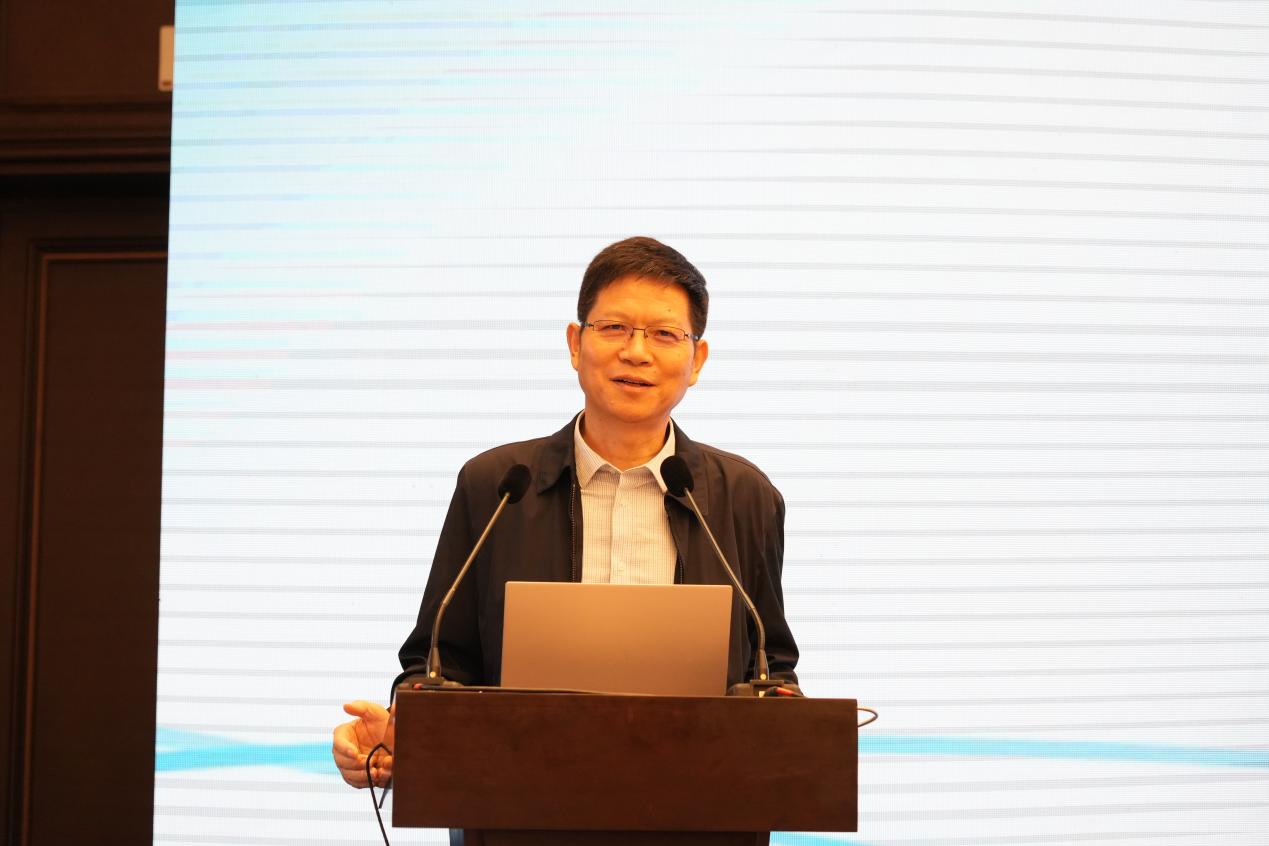
Professor Shi Zhengwen's speech
In his speech, Professor Shi Zhengwen proposed that the business exchange meeting is an annual event for tax lawyers nationwide and a key platform for leading the future development direction of tax lawyers. After more than 30 years of development, the tax lawyer business has established a solid talent foundation, the tax rule of law has been continuously improved, and the level of legal services and professional capabilities have been significantly improved. Facing the new development stage, Professor Shi Zhengwen proposed four suggestions for further promoting the high-quality development of the industry: First, we must have a sense of mission and shoulder the heavy responsibility of financial management, governance, serving the people, and ensuring national security. Second, we must continue to deepen the reform of the fiscal and tax system and fully implement the principle of tax legislation. Third, promote the effective implementation of the tax collection and management law and improve the quality and efficiency of tax collection and management. Fourth, further promote openness and innovation. For example, some local tax courts have promoted judicial professionalization reform, providing important guarantees for the development of tax rule of law. Finally, Professor Shi Zhengwen hopes that every tax lawyer will establish the concept of lifelong learning and be good at learning, continuously improve their professional abilities, and become a tax law expert-type social legal service worker.
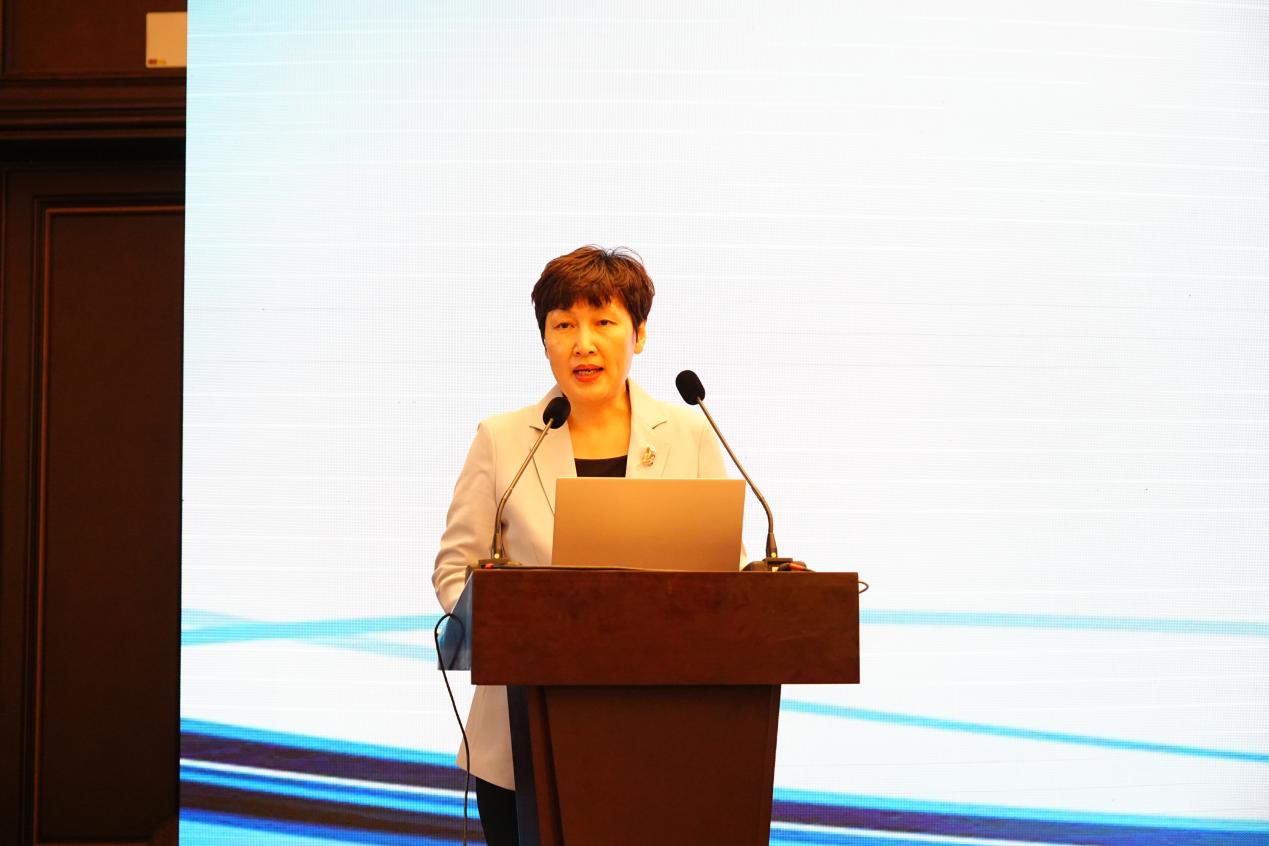
Vice President Zhao Guoxin's speech
Vice President Zhao Guoxin stated in his speech that the holding of this exchange meeting was timely and provided a valuable opportunity for communication. Experts, scholars, and practitioners from all over the country gathered together to discuss the latest developments and development trends in financial and tax legal services. It is of great significance to improve the level of financial and tax legal services in Heilongjiang Province. It is hoped that colleagues present can seize the opportunity, improve their professional qualities, and also look forward to strengthening cooperation and communication between provinces and cities to jointly promote the prosperous development of the financial and tax legal service industry.
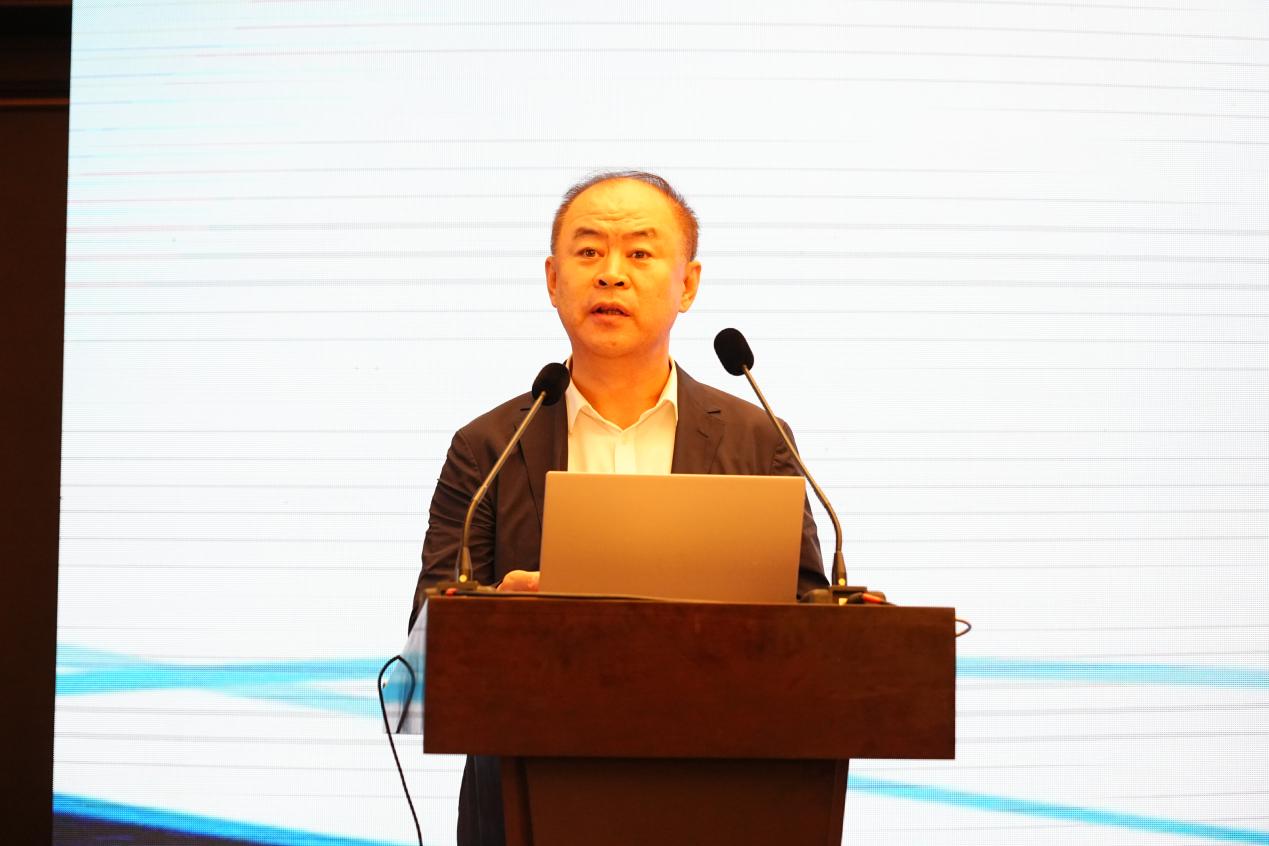
Vice President Wang Haimin's speech
In his speech, Vice President Wang Haimin expressed gratitude to the Fiscal and Tax Law Committee of the All China Lawyers Association for providing a valuable platform that transcends geographical limitations, integrates theory and practice, and connects different professional backgrounds and experiences. In-depth discussions on the latest tax policies and legal application difficulties, analysis of typical difficult cases, sharing of cutting-edge legal practices, and promoting in-depth dialogue and understanding between the legal, financial, academic and practical, public power departments, and market service entities.
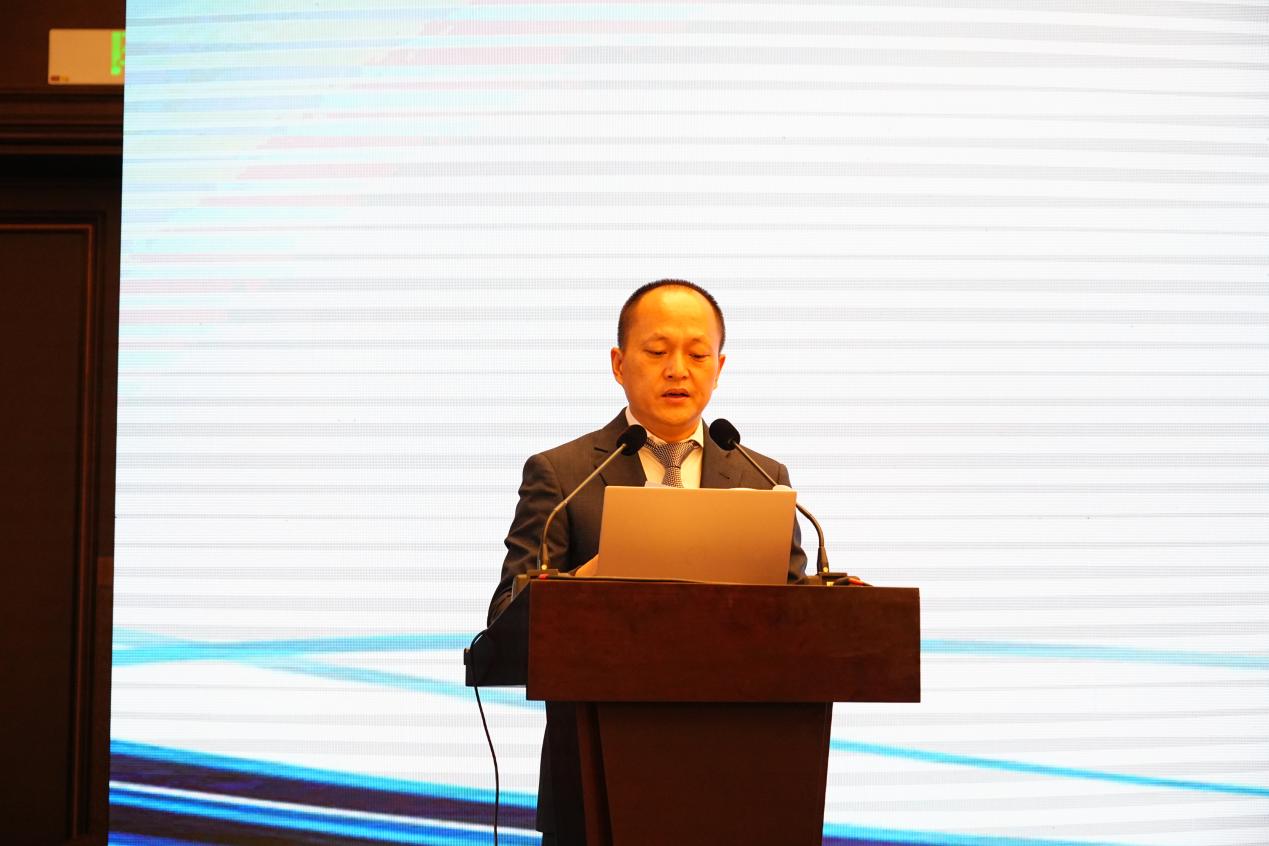
Director Liu Tianyong presided over the meeting
After the opening ceremony, the exchange meeting entered the theme speech session. This exchange meeting consists of five parts: Keynote speeches, Tax audit trends and tax-related dispute resolution, Corporate tax compliance and risk prevention, Tax-related legal services in the capital field, Analysis of typical dispute cases involving land appreciation tax and income tax for real estate development enterprises.
The first part was the keynote speech, hosted by Ma Xiaoyan, Deputy Director of the Fiscal and Tax Law Committee of the All China Lawyers Association and Senior Partner of Shanghai Allbright (Guangzhou) Law Firm. Liu Jianwen, President of China Association for Fiscal and Tax Law and Professor of Peking University Law School and Shi Zhengwen, Director and Professor of Center for Research in Fiscal and Tax Law of China University of Political Science and Law, delivered speeches.
Professor Liu Jianwen gave a speech titled "Highlights of the Consultation Draft for the Revision of the Tax Administration Law", pointing out that the draft for soliciting opinions has achieved the legal confirmation of the achievements of tax collection and administration reform since the 18th National Congress of the Communist Party of China. In response to the needs of new business models, taxpayers' rights protection, and legal connection, the tax management model has been reformed to promote the transformation of the governance system towards the Chinese path to modernization. Professor Liu Jianwen interpreted this revision from four aspects: First, from form to substance, through systematic optimization, the standardization and logical self-consistency of legal texts have been strengthened, and the upgrading of tax governance capabilities has been driven by digitization, and the regulatory model has been improved through refined means. Second, from rights to power, strengthen the protection of taxpayers' rights and the restriction of tax management power; Third, from domestic to international, promote the coordination and cooperation between domestic laws and enhance the integration with the international tax system; Fourth, from management to governance, continuously improve the tax information protection system, perfect the penalty and tax late payment rules, and deepen the tax collection and management reform to better serve the needs of chinese path to modernization development.
Professor Shi Zhengwen conducted a systematic and in-depth analysis of the Value-Added Tax Law under the topic of "Interpretation,Understanding and Application of Key Provisions of the Value-Added Tax Law". Firstly, he reviewed the reform history of China's value-added tax system, affirmed the importance of the Value-added Tax Law, and discussed the problems existing in the "Implementation Regulations of the Value-added Tax Law (Draft for Soliciting Opinions)". Secondly, he discussed the concept and principles of the legislation of the value-added tax law from the theoretical level, and believed that the Value-Added Tax Law implements the principles of tax legality, tax system translation, fairness, and scientific legislation. New progress has been made in key areas such as legislative authorization, input tax deduction, tax collection and management, and protection of taxpayers' rights. Subsequently, he focused on the key provisions of the Value-Added Tax Law, interpreting issues such as tax transactions, domestic consumption, mixed sales, presumptive taxation, non-deductible scope, tax incentives for fixed asset deductions, small-scale taxpayer declaration, and export tax refund application deadlines. Finally, he looked forward to the future direction of value-added tax reform and legal improvement, proposing to further reduce tax rates, consolidate tax rate levels, improve deduction systems, establish anti-tax avoidance systems, and clarify the boundaries between falsely issued VAT and evasive of VAT.
The second part, themed "Tax audit trends and tax-related dispute resolution," was chaired by Wang Chaohui, Deputy Director and Secretary-General of the the Fiscal and Tax Law Committee of the All China Lawyers Association and Senior Partner of Beijing Jincheng Tongda Law Firm. Ye Yongqing, Member of the Shanghai Lawyers Association Taxation and Customs Professional Committee and partner of the Shanghai Branch of Beijing Jindu Law Firm, Li Jingxian, director of the Finance and Taxation Legal Professional Committee of the Liaoning Lawyers Association and deputy director of Beijing Jingshi (Shenyang) Law Firm, and Jiang Zhenghe, partner of Hwuason Law Firm, delivered keynote speeches.
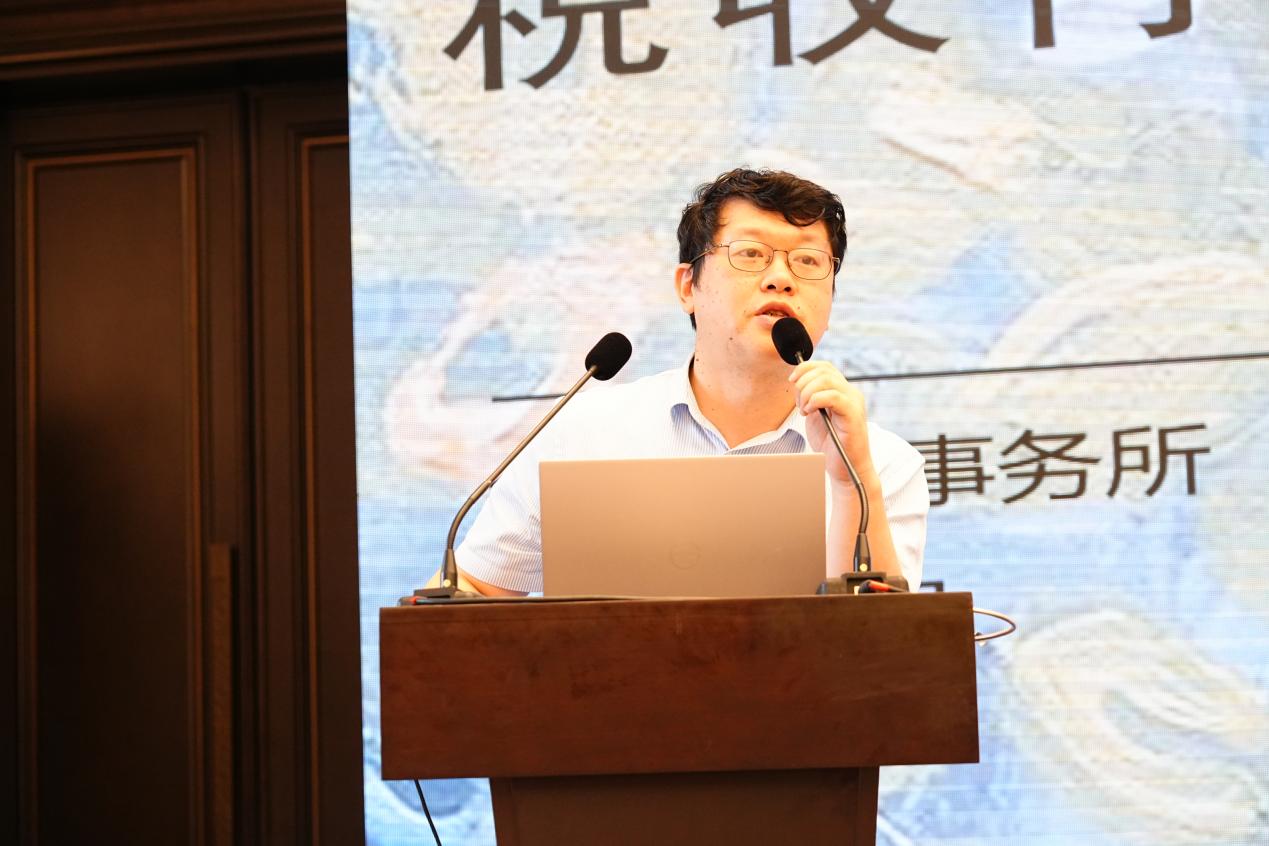
Lawyer Ye Yongqing's speech
Lawyer Ye Yongqing gave a presentation on "Practical Analysis of Typical Tax Administrative Dispute Cases". He first shared his feelings about tax administrative reconsideration cases, pointing out that the proportion of tax disputes resolved through administrative reconsideration is quite high, with some provinces even reaching 50%, indicating broad development prospects. However, it also faces the problem of many procedural disputes and insufficient substantive disputes. Secondly, based on personal experience, he analyzed the differences in thinking between tax lawyers and tax accountants. He believes that one must have both evidence awareness and legal thinking, and understand the position of tax authorities, in order to substantially resolve tax disputes. Then, he pointed out that tax lawyers must strengthen their knowledge of administrative law. Taking the example of the suspension of invoicing by tax authorities, he analyzed the nature and relief methods of tax authorities' law enforcement actions in administrative law, and explored the feasibility of upgrading the trial of major tax administrative reconsideration cases and third-party reconsideration. It is also proposed that taxpayers should strengthen communication with tax authorities and try to resolve tax disputes at the front end. Finally, he discussed the tax treatment issues of new formats such as non-performing asset loss deductions, pharmaceutical company technological transformation loss deductions, and the gaming industry based on case studies.
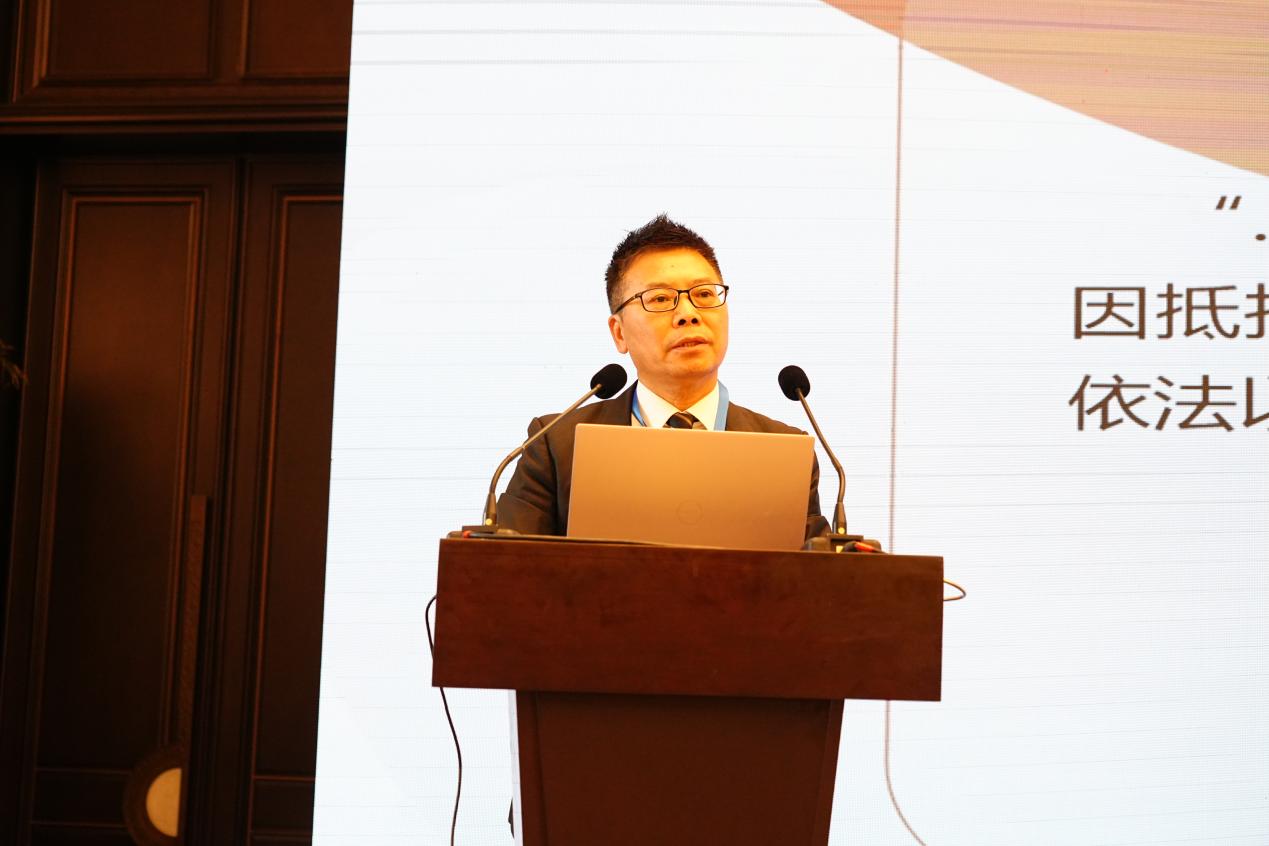
Lawyer Li Jingxian's speech
Lawyer Li Jingxian gave a lecture on "Practical Defense of Fraudulent Invoking Crimes under the judicial interpretation of the Supreme People's Courts and the Supreme People's Procuratorate". He first analyzed the word "e.g., "Falsely inflating performance, financing, loans, etc., not for the purpose of tax fraud" in the judicial interpretation of the Supreme People's Courts and the Supreme People's Courts and the Supreme People's Procuratorate. It is pointed out that the purpose of tax evasion should also fall within the scope of "e.g.." Secondly, he believes that the act of issuing false value-added tax special invoices and meeting the provisions of the crime does not mean that they are innocent and may still constitute other crimes. For example, the core difference between the crime of false invoicing and tax evasion lies in whether to use the core function of value-added tax special invoices for deduction. Then, he discussed Professor Zhang Mingkai's viewpoint. He believed that the False invoicing crime is not a result crime, but a non-legal purpose crime, specifically a shortened double-act crime. The False invoicing crime includes two types of acts: fictitious invoicing and deduction. The second act is the purpose of the first act. Finally, he analyzed the application of the crime clause. He believed that the crime clause is not a constitutive element of the crime, and the application of the crime clause requires the parties to actively provide evidence. In addition, the two conditions in the crime clause use a joint negative expression. For those who do not meet any of the conditions, It still constitutes a false crime.
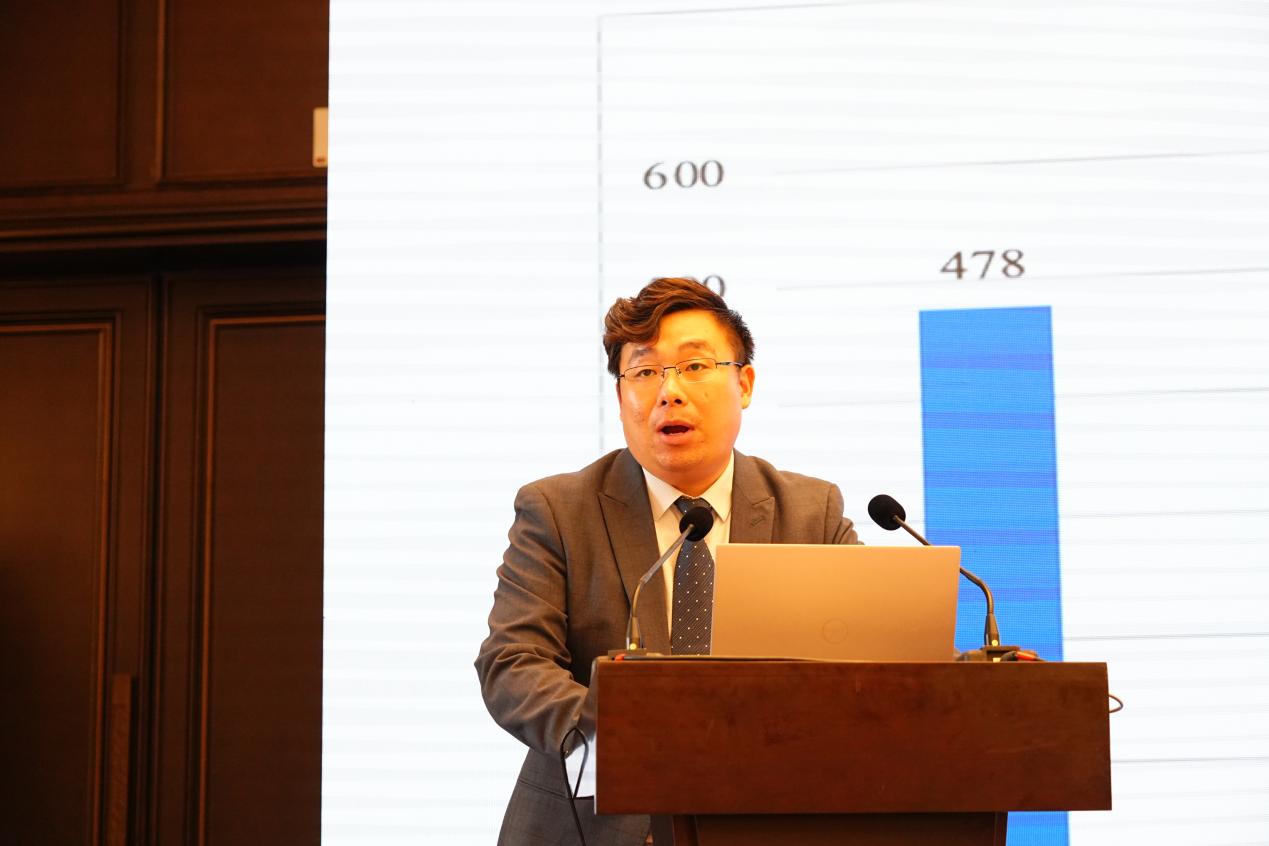
Lawyer Jiang Zhenghe’s speech
Lawyer Jiang Zhenghe presented the topic of "Analysis of criminal cases involving fraudulent export tax refunds and practical hotspots".Firstly,he showing the trend of the number of criminal cases of fraudulent export tax refunds in recent years, as well as the evolution of high-incidence industries and methods. Secondly, he analyzed the changes in the tax-related judicial interpretations of the Supreme People's Court and the Supreme People's Court on tax fraud methods, pointing out that the design of the legal provisions is more scientific and more in line with the current handling of export tax refund business. Three types of common and frequent tax fraud behaviors have been added, meeting the requirements of strict punishment for tax fraud judicial practice. He gave examples of the high incidence of tax fraud under the judicial interpretations of the two highs.This includes "false invoicing + low-value high-reporting", "false invoicing + loan export", collusion with freight forwarders and customs brokers to "pay and allocate invoices", and the use of agricultural product exports to defraud taxes, and interpretations of practical hotspots in tax fraud cases. Then, he combined a real case to discuss the defense strategy of tax fraud cases. Finally, he discussed the pre-standard of the crime of obtaining export tax refund by fraud and the criminal law standard of limiting the crime of obtaining export tax refund by fraud.
After the keynote speeches, Zheng Weinan, Deputy Director of the Fiscal and Tax Law Committee of the All China Lawyers Association and Partner of Tianda Gonghe (Wuhan) Law Firm, and Yin Qiliang, Captain of the Case Review Second Brigade of the Legal Support Brigade of the Harbin Public Security Bureau, and a public lawyer, provided comments.
The third part, with the theme of "Enterprise Tax Compliance and Risk Prevention", was chaired by Anqing Fang, Secretary-General of the Finance and Tax Law Professional Committee of the Liaoning Lawyers Association and partner of Beijing Jingshi (Shenyang) Law Firm. Rong Yaping, Director of the Financial and Tax Law Professional Committee of Jilin Lawyers Association, Senior Partner of Beijing Dacheng (Changchun) Law Firm, Wang Zhongzhang, Director of the Financial and Tax Law Professional Committee of Zhejiang Lawyers Association, Senior Partner of Zhejiang Jingheng Law Firm, Professor of the School of Business of Southwest University of Political Science and Law, Research on Legal Accounting and Financial and Tax Compliance Director Hu Yuntong delivered a keynote speech.
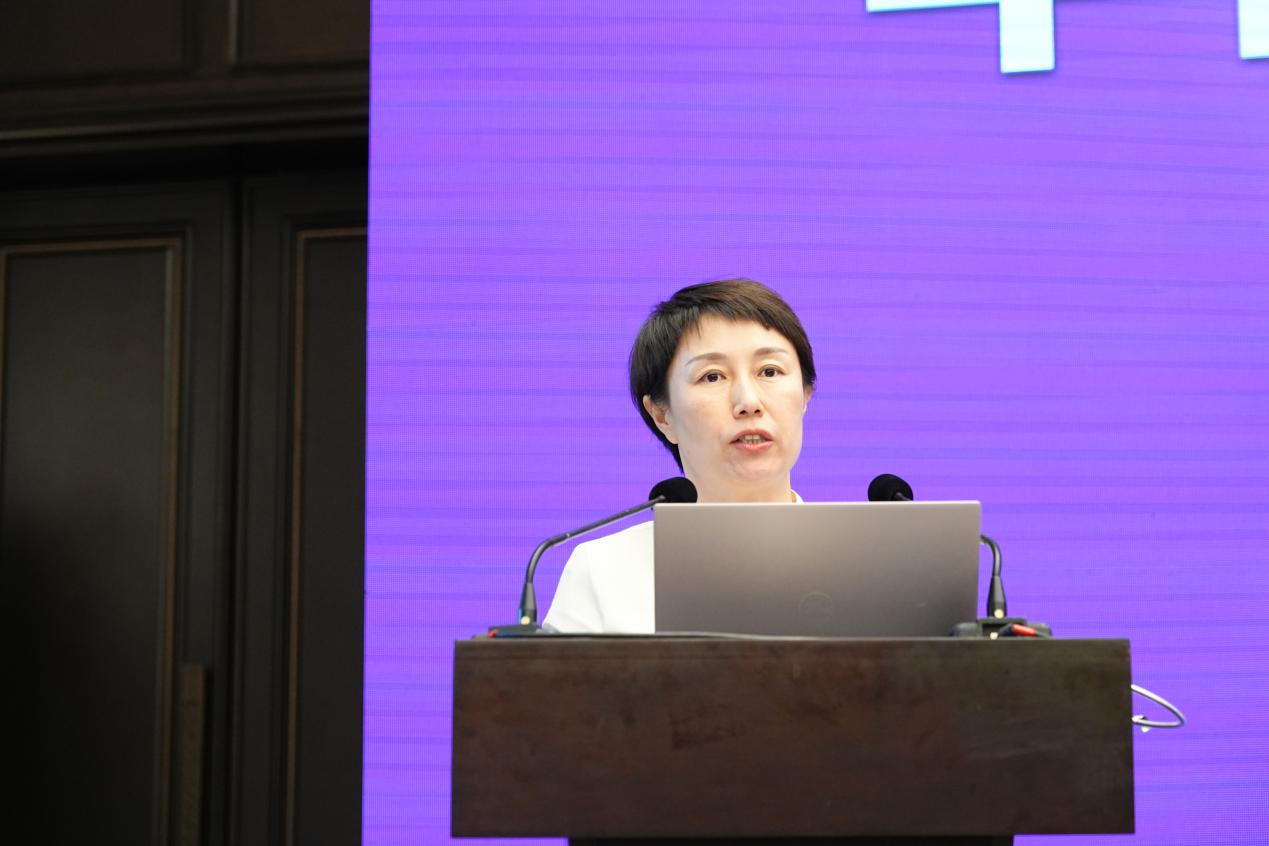
Lawyer Rong Yaping's speech
Lawyer Rong Yaping gave a speech on "New Tax Policies and Compliance Management for Platform Enterprises". Firstly,she pointed out that due to the strong liquidity and high virtualization characteristics of the platform economy, tax supervision has long faced information asymmetry problems, resulting in serious tax loss. The regulations and operating rules for the submission of tax-related information by platform enterprises have emerged. Then, she analyzed the "Regulations on the Submission of Tax-related Information by Internet Platform Enterprises" and other policies one by one, focusing on the subject of tax-related information submission, submission content, exemption situations, submission channels, and the legal responsibilities of platform enterprises. At the same time, she also pointed out three highlights of Announcement No.16: First, optimize the method of withholding and prepayment of individual income tax on labor remuneration; Second, refine the relevant provisions for the declaration of value-added tax and surcharges; Third, clarify the relevant requirements for pre-tax deduction of corporate income tax. Finally, she suggested that platform companies achieve sustainable development in a fair and competitive market environment through various measures such as system upgrades, process optimizations, and strengthened compliance management.
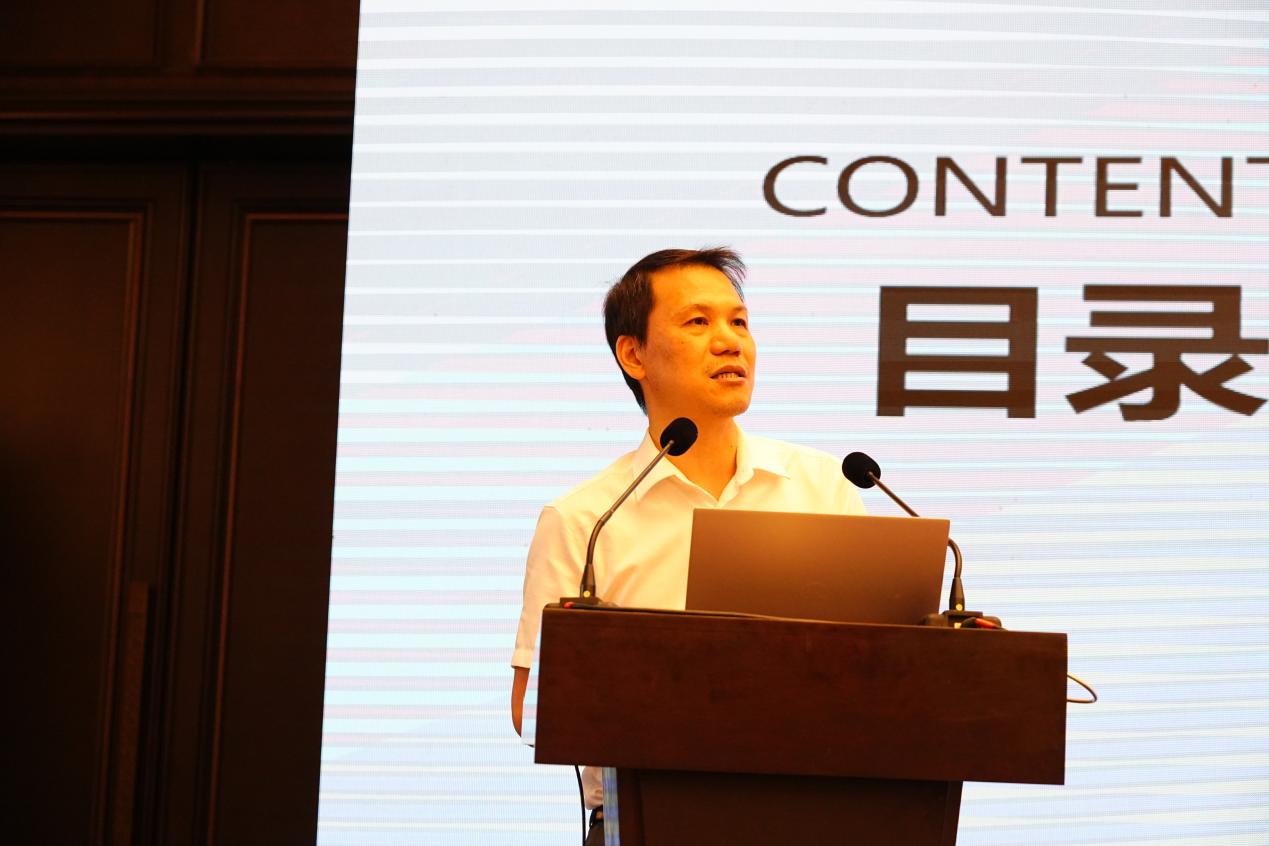
Lawyer Wang Zhongzhang's speech
Lawyer Wang Zhongzhang gave a lecture on "Analysis of Key Points of Tax Compliance in the Agricultural Product Industry", starting from the tax policies for agricultural products and combining practical cases to analyze in detail the dispute over the scope of agricultural product taxation, and discussed the authenticity determination and false invoicing of agricultural product transactions. He first introduced the value-added tax exemption policy for agricultural products and the tax exemption policy for corporate income tax. Then, he used the case of a certain agricultural product processing enterprise being required to pay corporate income tax and late payment fines for the production and sale of French fries and potato flour as a starting point, and interpreted the concepts of "initial processing of agricultural products" from the perspective of the legislative purpose and principles of tax law. Finally, he pointed out that in addition to focusing on the facts, the rationality of the commercial purpose should also be considered in the case of agricultural products tax. At the same time, it is further proposed that the case of reverse connection of agricultural product false issuance and execution can be handled from the perspective of the appropriateness of administrative punishment, how to determine the enterprise income tax, and how to claim compensation by the recipient.
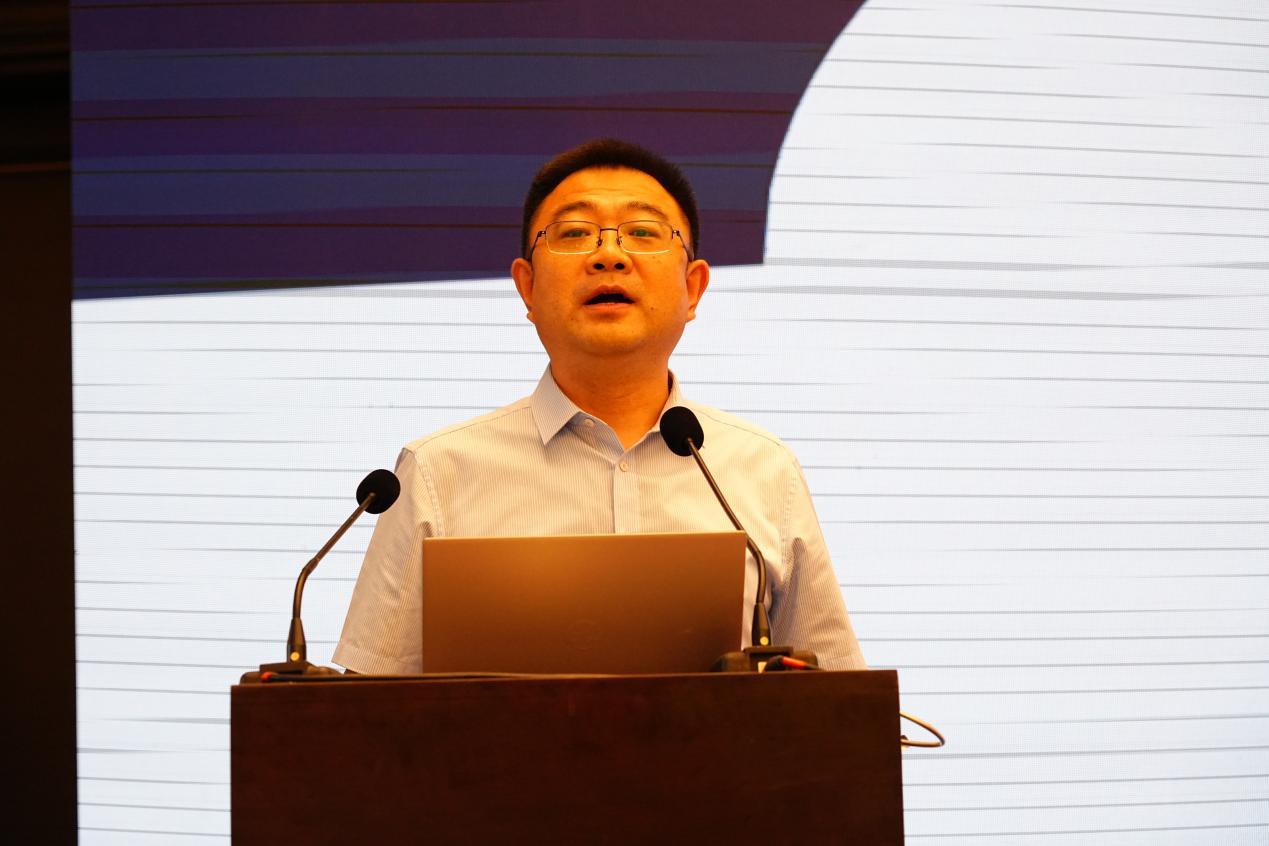
Professor Hu Yuntong's speech
Professor Hu Yuntong gave a speech on "Tax-related risks and compliance advice for the pharmaceutical industry", starting with the issue of false invoicing and fund misappropriation in the pharmaceutical industry in recent years. The "two vote system" and the action to correct the bad practices in the medical purchase and sale field and medical services are introduced. Next, he combined with the draft for soliciting opinions on the revision of the tax collection and management law, suggesting that tax authorities may use big data design models to calculate the rationality of pharmaceutical company procurement expenses and depreciation, and then discover tax risk points. Then, he discussed the provisions in the "Implementation Regulations of the Value-Added Tax Law (Draft for Solicitation of Comments)" regarding the exemption of value-added tax for medical institutions providing medical services and the exclusion of tax-exempt policies for beauty medical institutions. He believes that public medical institutions may also provide medical beauty services, and this policy may cause unfair tax burdens. Finally, he introduced the tax inspection situation of the pharmaceutical industry in various regions in recent years, and sorted out the high incidence of inflated costs, improper use of tax preferential policies, false issuance of agricultural product purchase invoices, high proportion of conference fees, unreasonable proportion of abnormal losses of drugs and medicinal materials, and inappropriate pricing of equivalent sales goods. Excessive expenditure of publicity expenses, revocation of high-tech enterprise qualifications, and other tax-related risks.
After the keynote speeches, Lu Yi, Deputy Director of the Fiscal and Tax Law Committee of the All China Lawyers Association and Partner of Beijing Guofeng (Shanghai) Law Firm, and Wu Xiaohong, lawyer and professor at Anhui Tianhe Law Firm, provided comments.
The fourth part, themed "Tax-related Legal Services in the Capital Field," was chaired by Wang Xi, Secretary-General of the Finance and Tax Legal Professional Committee of the Jilin Lawyers Association and Director of Zhejiang Jingheng (Changchun) Law Firm. Cai Ming, Deputy Director of the Financial and Tax Law Professional Committee of the National Lawyers Association and Managing Partner of Guohao Law Firm (Nanchang), Zhao Hengzhi, Deputy Director of the Financial and Tax Law Business Committee of the Jiangsu Lawyers Association and Senior Partner of Jiangsu Fade Dongheng Law Firm, and Yang Shengming, Partner of Hwuason Law Firm, delivered keynote speeches.
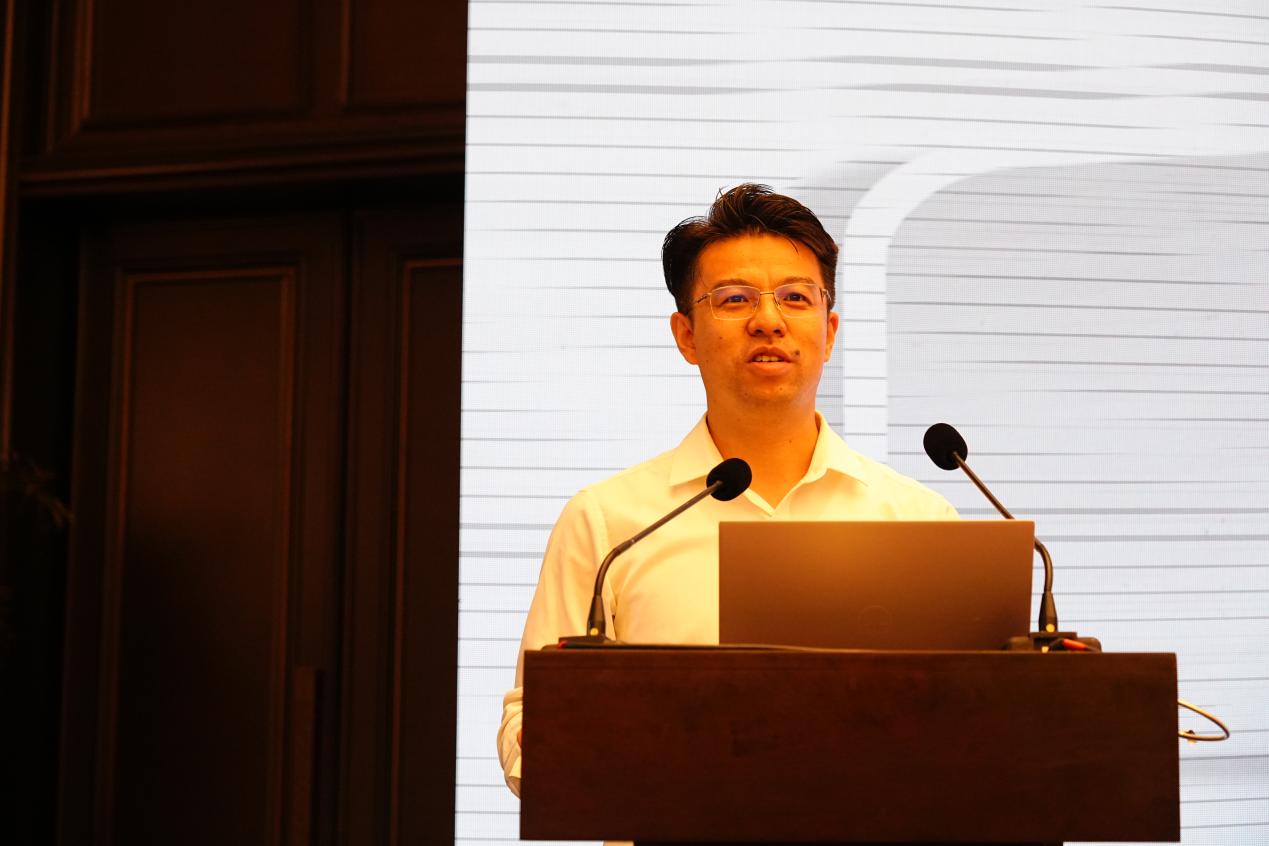
Lawyer Cai Ming's speech
Lawyer Cai Ming discussed "Tax-related Matters and Practical Cases of Bankruptcy Enterprises" from six aspects. First, the order of tax debt repayment, declaration, and recognition process. He focused on analyzing the differences between tax law and bankruptcy law in the order of late payment penalty repayment. It is believed that the late payment fee claims before bankruptcy acceptance should be recognized as ordinary claims according to the provisions of the Bankruptcy Law. The second is the issue of new taxes in bankruptcy proceedings. He believes that new taxes should belong to bankruptcy expenses or common interests. Third, the tax issues related to the disposal of bankruptcy assets. He analyzed the treatment of value-added tax, land value-added tax, corporate income tax, and deed tax for bankrupt enterprises, and pointed out that the agreement on the buyer's responsibility for taxes may result in the risk of not being able to deduct before tax. At the same time, he pointed out that the policy of not levying value-added tax on restructuring does not necessarily apply to bankruptcy reorganization. Fourth, the application of bankruptcy tax incentives and policies, focusing on analyzing the differences in policies regarding the prepayment of corporate income tax for bankrupt enterprises in different places.Fifth, the responsibilities and risk prevention of bankruptcy administrators. He suggested that bankruptcy administrators comprehensively verify the tax situation, declare new taxes on time, and fulfill their duties diligently. Sixth, it analyzes typical tax-related cases of bankrupt enterprises.
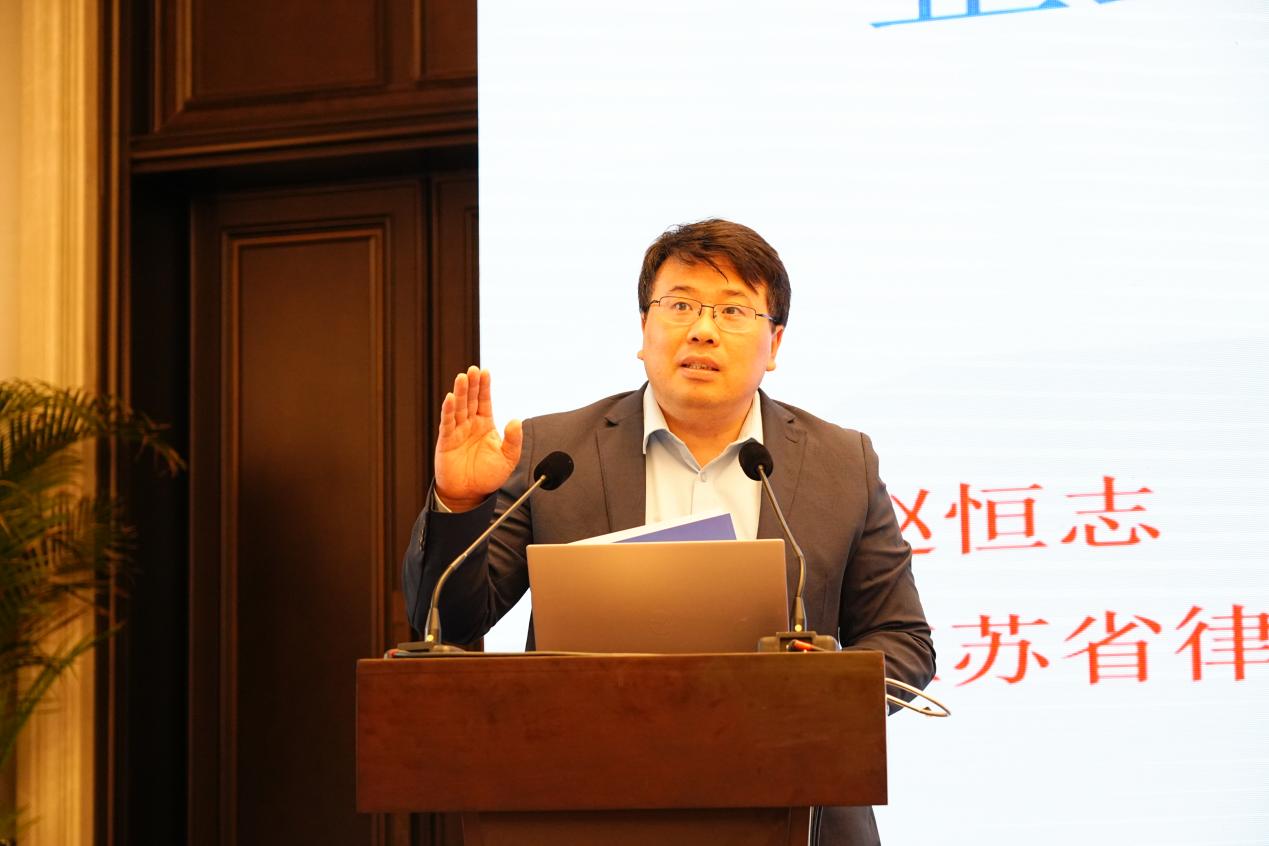
Lawyer Zhao Hengzhi's speech
Lawyer Zhao Hengzhi gave a lecture on "Tax Treatment and Case Analysis of Corporate Mergers and Acquisitions". He first interpreted the concepts of assets and business groups from an accounting perspective, pointing out the differences in tax policies between asset transfer and business group asset transfer, and combined with relevant cases. It is believed that the transfer of assets of the business group is not within the scope of VAT collection. Secondly, he analyzed the tax policies for company separation and business asset transfer, pointing out the correlation between separation and business divestment under accounting law, and believed that business divestment does not fall within the scope of value-added tax collection, and the deferred tax policy for corporate income tax can be applied if the conditions are met. However, the application of the preferential policy of land value-added tax is controversial. He then raised the issue of the loss carry-forward limit for business combination under Document No. 59 and pointed out that reverse absorption mergers can solve this obstacle. Then, he analyzed the issue of debt exemption and equity adjustment of contributors, pointing out that debt exemption for creditors belongs to income from corporate restructuring, but debt exemption for shareholders belongs to equity transactions and should be included in capital reserves, with differences in tax obligations. Finally, he discussed the policy basis and rationality of valuation and differentiated pricing in the same asset acquisition process with case studies.
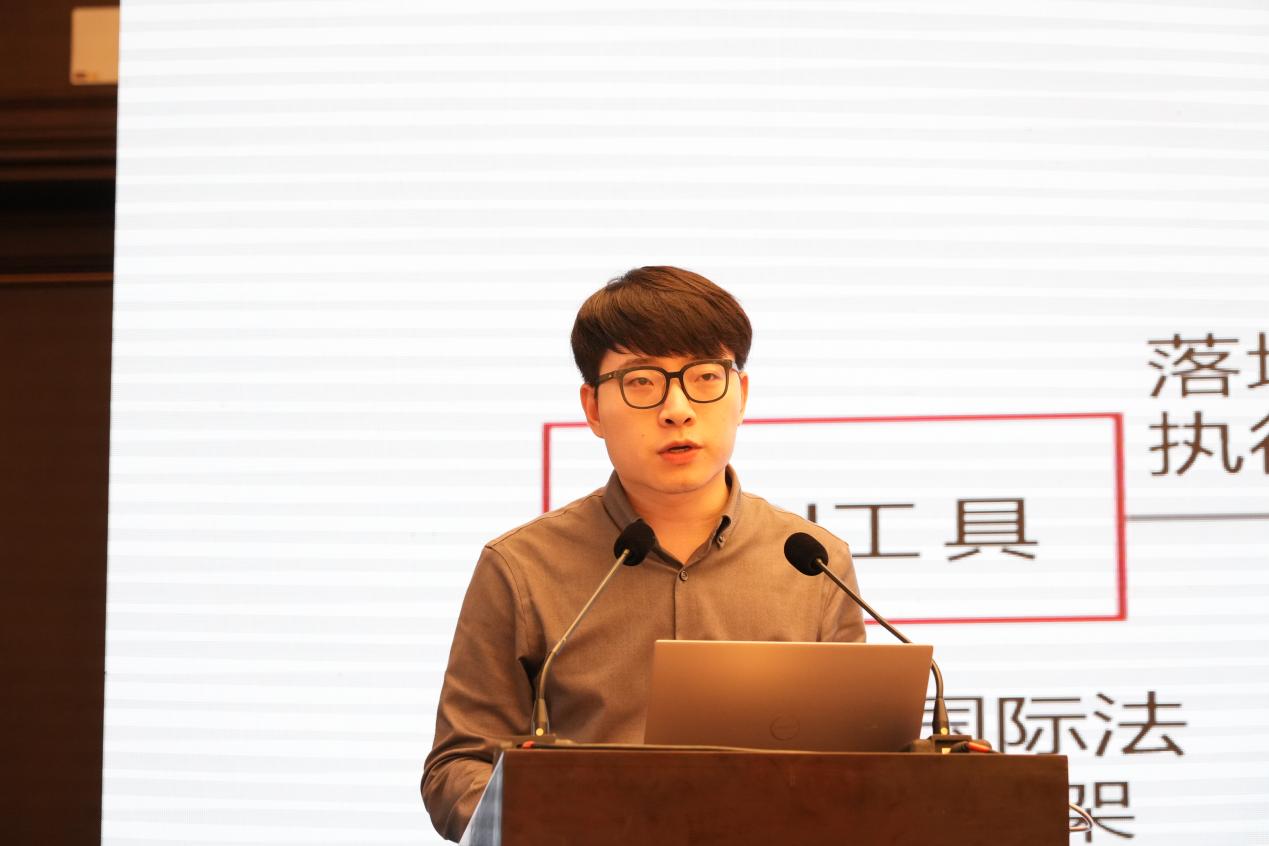
Lawyer Yang Shengming's speech
Lawyer Yang Shengming gave a lecture on "Tax Risk Prevention and Wealth Management for High-Net-Worth Individuals under the CRS Framework". He first reviewed the development and evolution of the tax intelligence exchange mechanism, combined with tax transparency standards. This paper analyzes the transition of international tax information exchange from the principle of "necessity" to the principle of "foreseeable relevance," and introduces the international law sources of information exchange on request (EOIR) and automatic information exchange (AEOI). The status, role, implementation status and achievements of CRS in international law are interpreted. Next, he analyzed the six major risks faced by high-net-worth individuals under the CRS framework, including failure to declare taxes, unreasonable low-priced asset transfers, long-term non-distribution of profits from overseas holding companies, unreasonable business arrangements, non-deductible losses from stock transfer, and mixed mismatch. Finally, he put forward six suggestions for tax compliance and wealth management for high net worth individuals, including clarifying their tax resident status, correctly judging the nature of income, filing tax declarations in accordance with the law, declaring tax credits in accordance with the law, reasonably using the recovery period clause to defend, and resolving tax disputes in the early stage.
After the keynote speeches, Gao Ming, Deputy Director of the Financial and Tax Law Professional Committee of the Heilongjiang Lawyers Association and Director of Heilongjiang Dongyu Law Firm, and Liu Ying, Deputy Director of the Financial and Tax Law Professional Committee of the Liaoning Lawyers Association and Senior Partner of Liaoning Tongfang Law Firm, provided comments.
The fifth part is an analysis of typical dispute cases involving land value-added tax and income tax for real estate development enterprises, chaired by Liu Yuanqi, Secretary-General of the Financial and Tax Law Professional Committee of the Heilongjiang Lawyers Association and Director of Beijing Huatai (Harbin) Law Firm. The participants discussed two typical dispute cases of land value-added tax and corporate income tax for real estate development companies.
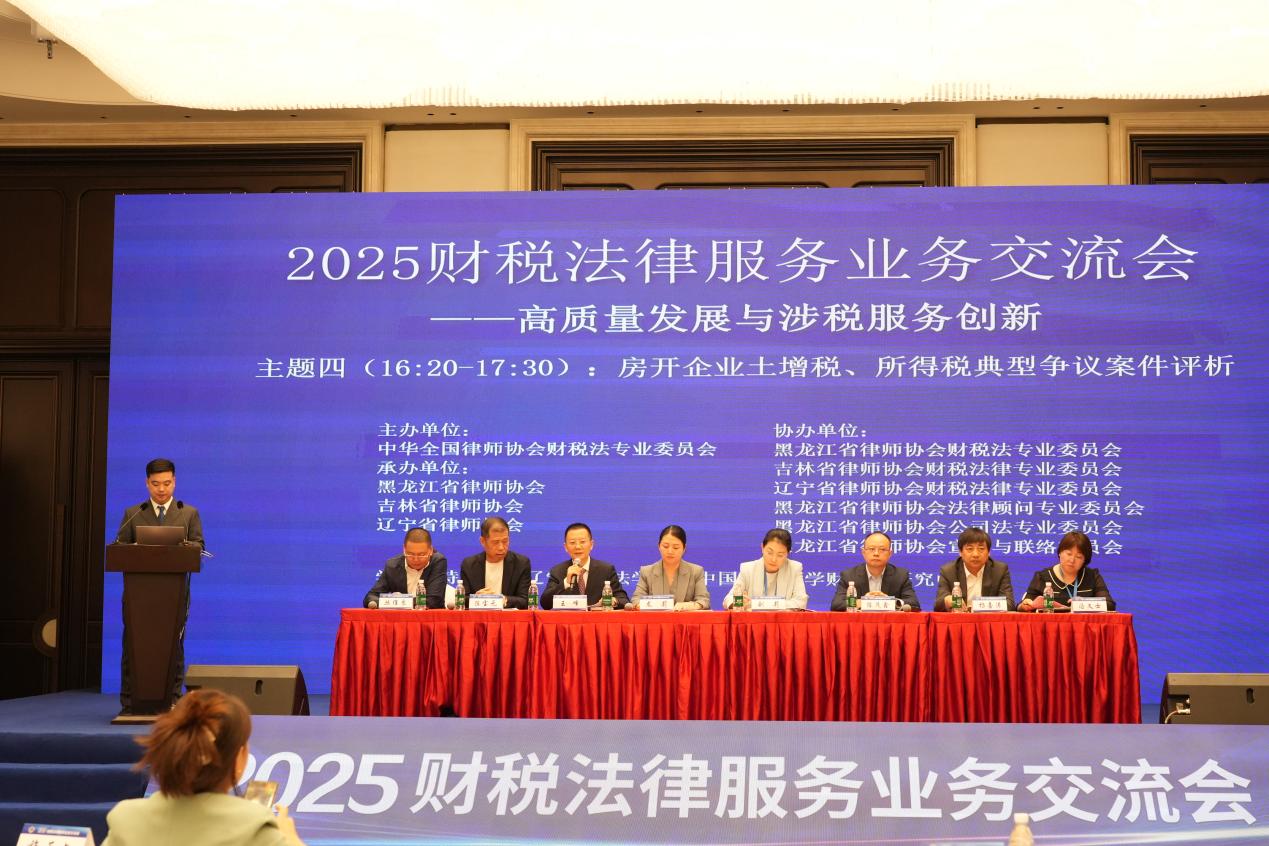
Theme four Speakers
Yang Xitao, member of the Financial and Tax Law Professional Committee of the National Lawyers Association and senior partner of Duan and Duan (Xi'an) Law Firm, Liu Li, director of the Financial and Tax Law Professional Committee of the Heilongjiang Lawyers Association and lawyer at Beijing Jingshi (Harbin) Law Firm, Wang Feng, Director of the Financial and Tax Law Professional Committee of the Beijing Lawyers Association and Senior Partner of Beijing Dacheng Law Firm, Chen Maoxin, Director of the Financial and Tax Law Professional Committee of the Anhui Lawyers Association and Partner of Anhui Tianhe Law Firm, Chen Baoyuan, Deputy Director of the Finance and Taxation Legal Professional Committee of the Shandong Lawyers Association and Director of Shandong Qilu (Qingdao) Law Firm, and Long Li, Deputy Director of the Finance and Taxation Professional Committee of the Chongqing Lawyers Association and Director of Chongqing Delang Law Firm, made speeches at the seminar.
The participants pointed out that the two typical tax cases of real estate development companies reflect that tax increases and corporate income tax compliance are both key and difficult points for real estate development companies' tax compliance. In particular, the current legalization process of land value-added tax in China is slow, the tax system is not sound enough, and the policies and rules vary in different regions. It is easy for tax and enterprise to have disputes at the substantive level such as liquidation units, liquidation collection, cost sharing, type division, tax reduction and exemption, and collection methods. Real estate development companies should pay attention to strengthening compliance with land value-added tax, effectively prevent and control in advance, and provide relief after the event. They should maintain good communication with tax authorities to ensure tax compliance, and also resort to reconsideration, litigation, and other relief procedures in accordance with the law to resolve specific disputes. The successful results of these two typical cases also suggest that tax lawyers should be able to combine legal thinking with tax law thinking when assisting real estate developers in resolving tax disputes through reconsideration litigation. Pay attention to whether the tax authorities' tax management actions exceed the authorized boundaries of the law, whether they reduce the legitimate rights and interests of taxpayers, or increase the burden on taxpayers, and propose legality reviews of normative documents, and properly resolve disputes through mediation or settlement mechanisms.
After the thematic discussion, Tang Wenshi, Deputy Director of the Finance and Tax Law Professional Committee of the Jilin Lawyers Association and Director of Jilin Han'ang Law Firm, and Cong Weiliang, a public lawyer from the Inspection Bureau of the Harbin Taxation Bureau of the State Administration of Taxation, provided comments.
The closing ceremony of this exchange meeting was held at 17:40. The meeting was chaired by Liang Yu, Deputy Director of the Financial and Tax Law Professional Committee of the Heilongjiang Lawyers Association and Deputy Director of the Service Center of the Heilongjiang Provincial Taxation Bureau. Liu Tianyong, Director of the Fiscal and Tax Law Committee of the All China Lawyers Association and Director of Hwuason Law Firm, Liu Li, Director of the Financial and Tax Law Professional Committee of the Heilongjiang Lawyers Association, and Yang Jiajun, Supervisor of the All China Lawyers Association delivered speeches and concluding remarks.
In his speech, Director Liu Tianyong first expressed sincere gratitude on behalf of the organizers to all the experts, scholars, participants, organizers, co-organizers, supporting units, and conference staff. Director Liu pointed out that the agenda of today's exchange meeting was compact and the content was rich. The speakers focused on the theme of "high-quality development and innovation in tax-related services" and jointly discussed new trends in tax legislation, new demands for corporate tax compliance, and tax risk prevention in key industry areas. The wonderful speeches of the guests not only contributed valuable knowledge and experience, but also opened up new horizons and directions for innovation and upgrading of tax-related legal services. We hope that this exchange meeting can provide useful reference for the participants, and we look forward to meeting everyone again next year to discuss new developments.
Director Liu Li, on behalf of the organizers, pointed out in her speech that she felt honored to witness the perfect conclusion of this feast with elites in the tax-related service field from all over the country in Harbin, known as the "Ice City and Summer Capital". Everyone experienced a professional baptism full of practical knowledge. Each speech embodies wisdom, and every discussion sparks. This is the vivid practice of the theme of high-quality development and social service innovation. The end is not the end, but a new starting point. With today's achievements, we should integrate innovation into service practice, turn cooperation into the driving force for progress, and continue to deepen the construction of the rule of law in finance and taxation.
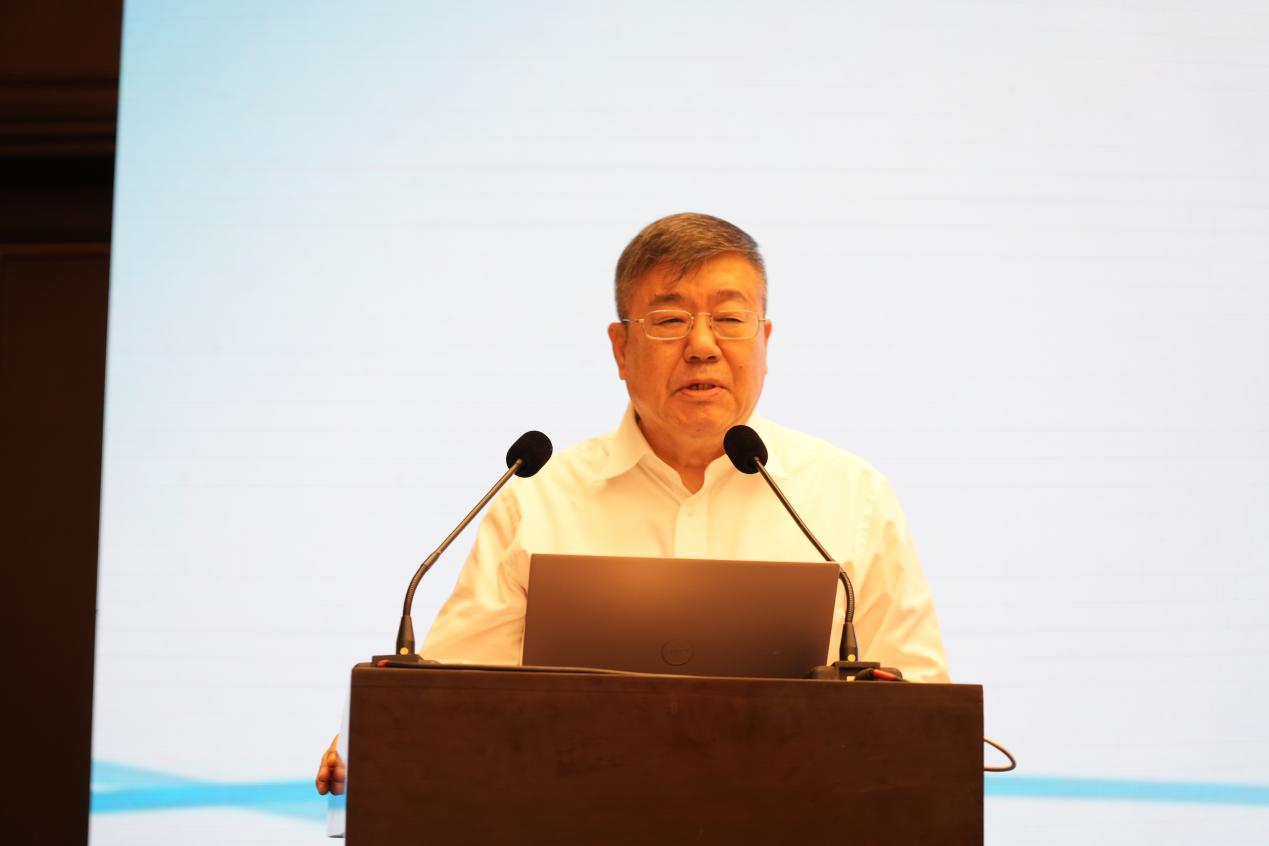
Yang Jiajun's speech summary
In his speech, Supervisor Yang Jiajun expressed sincere congratulations on behalf of the Supervisory Board of the All China Lawyers Association on the successful holding of this meeting. He pointed out that this conference conducted in-depth research and discussion on the cutting-edge and hot issues in the field of tax law, including both theory and practice, as well as legal provisions and case analysis, which greatly inspired and benefited everyone. The Board of Supervisors believed that the theme of this meeting was clear, the content was rich, and the organization was well-organized. It was a high-quality and efficient meeting. It fully affirmed the achievements of this meeting and sincerely wished the Financial and Tax Committee of the National Lawyers Association under the leadership of Director Liu Tianyong. The work is getting better and better, achieving greater results.
After the closing ceremony, the business exchange meeting concluded successfully. This exchange conference focused on high-quality development and innovation in tax-related services. Tax law scholars, tax lawyers, tax agents, certified public accountants, tax officials, judicial experts, corporate financial personnel, and university teachers and students conducted extensive and in-depth discussions on the theme. It demonstrates the organic combination of cutting-edge, theoretical, practical, professional, and open. It is of great significance for leading the development, business expansion, and strategic cooperation of tax lawyers, tax agents, and other tax-related service industries. In the future, the conference will continue to explore innovative practices, promote the construction of tax rule of law in the new journey of Chinese path to modernization, and contribute to the new round of financial and tax system reform.





